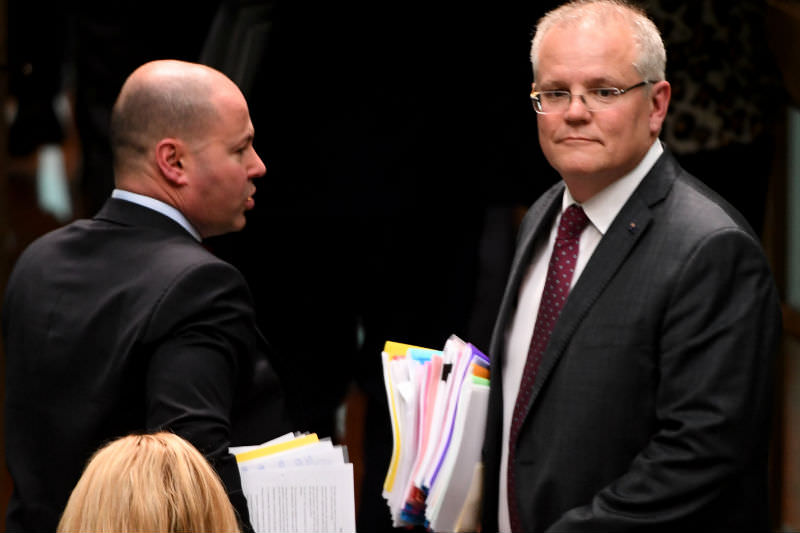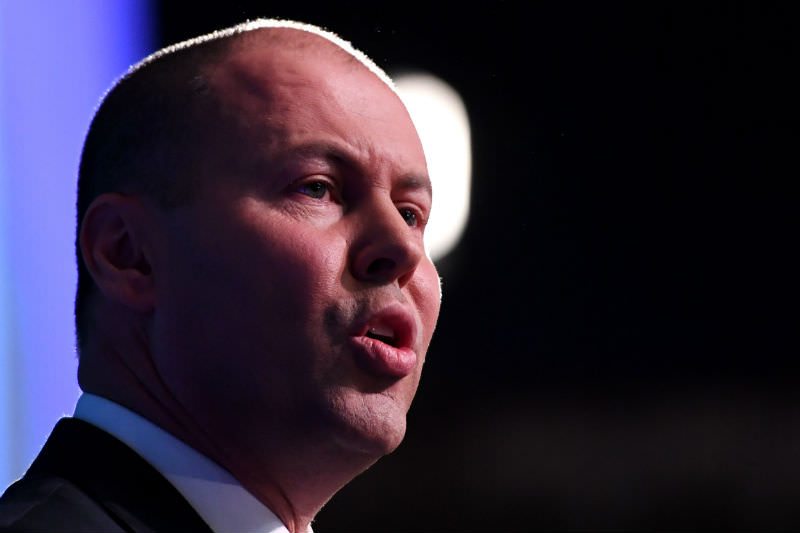Keywords: Economic Stimulus
-

AUSTRALIA
- Claire Victory
- 26 October 2021
14 Comments
We don’t need further commentary that gives people who are well off yet another excuse to demonise people living in poverty and to blame them for their circumstances. It lets governments off the hook – governments which should be addressing the structural causes of poverty.
READ MORE 
-

ECONOMICS
But although the Coalition will never admit it, it looks suspiciously like there has been some bipartisan institutional learning about how to manage financial crises. If you want to stimulate an economy in times of crisis put the money directly into the economy, either into people’s pockets or to businesses who then pass it on to workers.
READ MORE 
-

INTERNATIONAL
- Andrew Hamilton
- 15 April 2021
4 Comments
The parallels with our own times of the events of Black Friday in 1921, with its movement from a time of heavy social spending and the flowering of social capital to a time of recovery, and the fateful choices that are made at such times, are evident. We await the results of the economic choices being made by government and their effects on community and solidarity.
READ MORE 
-

AUSTRALIA
- Leya Reid
- 29 October 2020
Despite the heavy focus on 'hard-hat' professions in our political discourse, Australia’s economy is dominated by its service sectors. If this is Australia’s first service sector recession, why is this not reflected in the focus of our recovery and job creation programs?
READ MORE 
-

ECONOMICS
- David James
- 20 October 2020
3 Comments
The global economy was already teetering on the edge of such a debt crisis before the coronavirus hit. The economic shutdowns have accelerated the damage.
READ MORE 
-

AUSTRALIA
- Andrew Hamilton
- 15 October 2020
8 Comments
The Federal Budget this year coincided with the release of Pope Francis’ Encyclical Fratelli Tutti. Both are preoccupied with the shape that society will take after COVID-19. It is tempting to compare their different approaches.
READ MORE 
-

ARTS AND CULTURE
- Leya Reid
- 13 October 2020
49 Comments
A common argument is that publicly-funded artists take unnecessarily from the ‘average Australian’. In the current international crisis, this argument fails to recognise that artists and arts workers are just as deeply impacted financially by COVID-19 as the ‘average Australian’ in other industries.
READ MORE 
-

ECONOMICS
- Joe Zabar
- 24 September 2020
3 Comments
The havoc COVID-19 has wreaked on our economy has been less damaging than for some other countries. While international comparisons may help us feel better about our circumstances, the reality is that Australia’s economy is in trouble and will need more than economic first aid through measures like JobKeeper to get us back on track to recovery.
READ MORE 
-

ENVIRONMENT
- Various
- 18 September 2020
3 Comments
The pandemic has afforded us a preview of how a crisis plays out when the science is not properly heeded. The overwhelming majority of climate scientists have long been sounding the alarm that the health and safety of large parts of the population are at serious risk, both here and around the world. We are already seeing the damage to health and to the environment that they predicted.
READ MORE 
-

AUSTRALIA
- Dustin Halse
- 30 July 2020
4 Comments
In Australia, we have long boasted of our unparalleled prosperity and strong economic growth. We have championed home ownership and the quarter acre block — after all our home is meant to be our castle. But for too many, the basic human right of having a place to call home remains out of reach.
READ MORE 
-

ECONOMICS
- Bree Alexander
- 09 July 2020
3 Comments
What then, does the case for full employment look like? This is not just an economic question, but too of having access to a decent wage that allows all people to live a decent life.
READ MORE 
-

ECONOMICS
- Nicola Heath
- 30 June 2020
2 Comments
It turns out that the COVID-19 economic crisis is disproportionately affecting women — so much so that some have dubbed it a ‘pink-collar recession’. Unemployment figures show that since February, 457,517 women have lost their jobs compared to 380,737 men.
READ MORE 